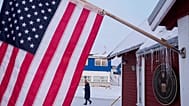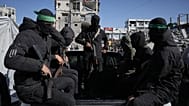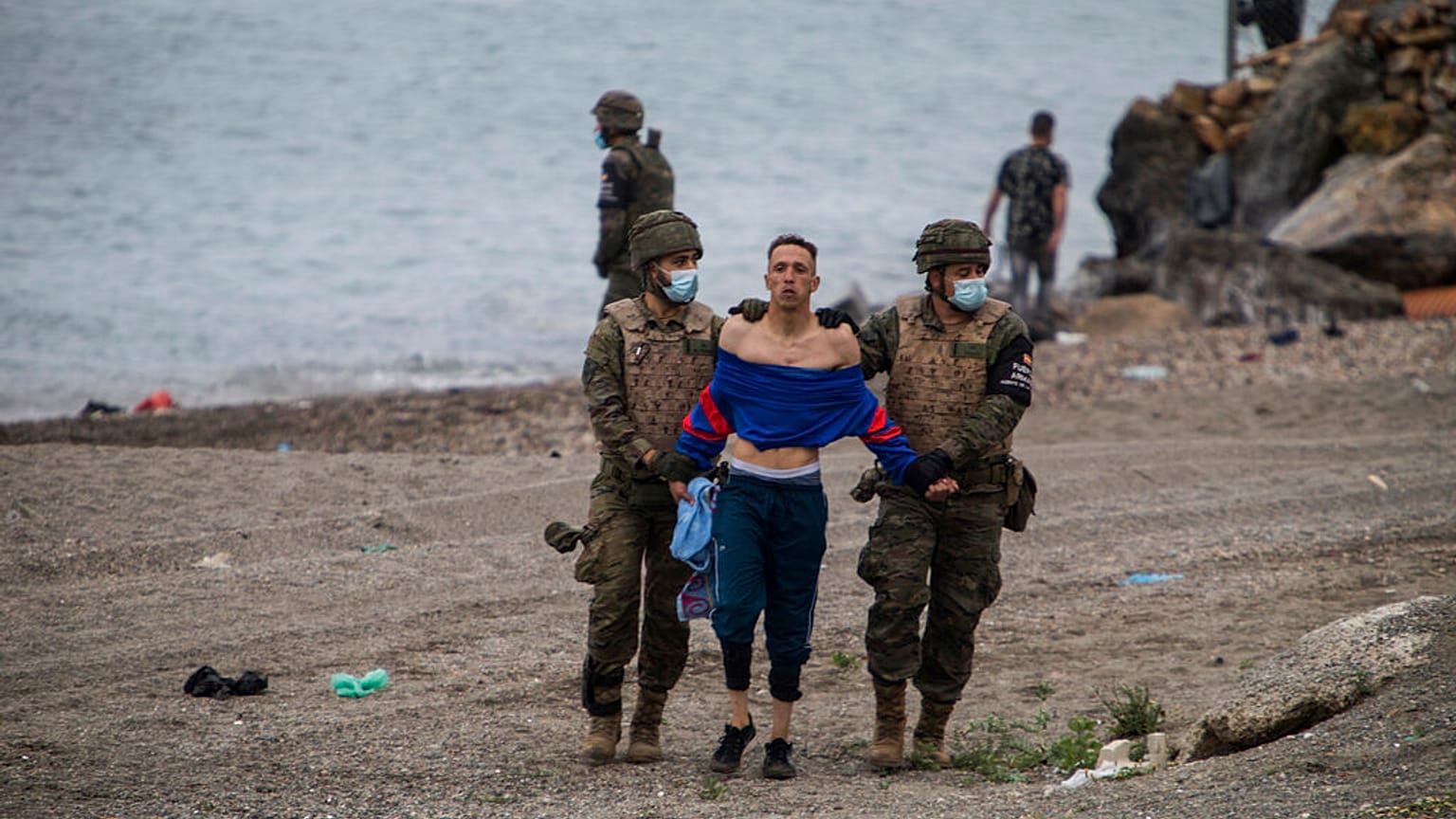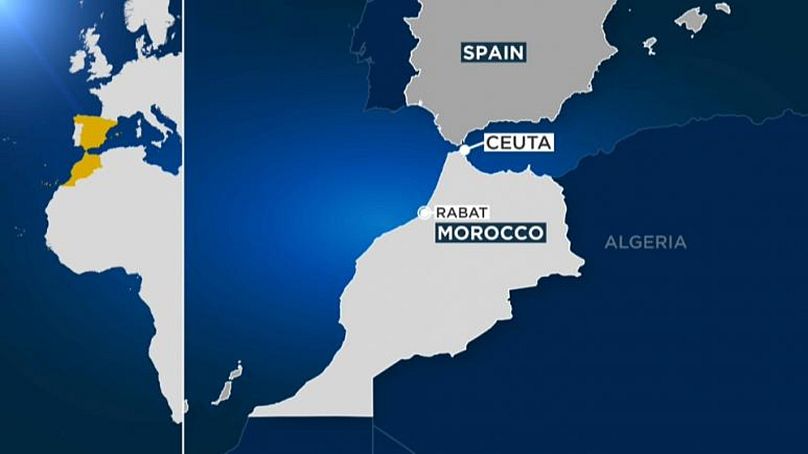Spanish PM Pedro Sanchez has vowed to “restore order” after the influx of migrants entered the Spanish enclave of Ceuta from Morocco, amid a diplomatic spat between the two sides.
Europe “will not be intimidated by anyone” on the issue of migration, an EU official has said, as thousands of migrants continue to be returned to Morocco from the Spanish enclave of Ceuta.
Around 8,000 people got into the city on boats crammed with men, women, and children, while many others swam or even paddled across the border between Monday and Tuesday.
Spain's prime minister Pedro Sanchez arrived in the city on Tuesday, vowing to "restore order" after the thousands of migrants entered from Morocco.
Since then some 4,000 have been returned, according to the Spanish government.
The flow of migrants occurred amid a tense diplomatic standoff between Madrid and Rabat, and there have been suggestions Morocco did little to prevent it.
EU commissioner for the European Way of Life, Margaritis Schinas, told a Spanish radio station on Wednesday morning that Europe would “not be a victim of these tactics.”
"Ceuta is Europe, this border is a European border and what is happening there is not Madrid's problem, it is the problem of all,” he said.
Brussels had already expressed solidarity with Spain on Tuesday, with EU Commissioner for Home Affairs Ylva Johansson calling on Morocco to prevent "irregular departures" from its territory.
"No one can intimidate or blackmail the European Union," said Schinas, who recalled that there had already been "some attempts by third countries...over the last 15 months to instrumentalise" the migration issue.
"We cannot tolerate this," he said, referring to Turkey by name.
'Serious crisis for Spain and Europe'
At least 1,500 of those that crossed into Ceuta, a city of 85,000 that is separated from Morocco by a 10-metre fence, are believed to be teenagers.
Authorities say that the crossings began at 2 am on Monday in the border area of Ceuta known as Benzú and were then followed by a few dozen people near the eastern beach of Tarajal.
The daylight didn't stop the crossings, as entire families with children swam or boarded inflatable boats, said a police spokesman. The influx continued on Tuesday, although in lower numbers.
The migrants were checked by Red Cross medics before being taken to a reception centre, where they were detained, the spokesman said.
Spain’s prime minister Pedro Sanchez, prior to his visit to the city, said during a brief television address: "We are going to restore order in (the) city and at our borders as quickly as possible.”
He added that the “sudden influx” of migrants was a “serious crisis for Spain and Europe”.
Sanchez said all adult migrants who enteres illegally would be expelled.
The flow to the enclave had dried up by midday on Tuesday, but hundreds of Moroccans who had managed to cross to the Spanish side were still on the beach.
Meanwhile, Spanish police, who have deployed armoured vehicles, were using tear gas to dissuade the migrants gathered on the other side of the border from reaching Ceuta.
EU land borders with Africa
Last month, around 100 migrants swam to Ceuta in groups of 20 to 30. Most were deported back to Morocco.
The Spanish enclaves of Ceuta and Melilla have the European Union's only land borders with Africa, making them popular entry points for migrants seeking a better life in Europe.
When Morocco gained independence in the 1950s Spain held onto control of the two cities.
Eighty-six migrants from sub-Saharan Africa managed to enter Melilla, 400 kilometres to the east of Ceuta, on Tuesday.
But that was out of a total of "more than 300" who attempted to cross, according to authorities.
Migrants try to reach the enclaves either by swimming along the coast or climbing the tall border fences that separate them from Morocco.
The wave of arrivals came at a point of tension between Madrid and Rabat over the presence in Spain of the leader of the Western Sahara independence movement.
Rabat reacted angrily after it emerged that the leader of the Polisario Front, Brahim Ghali, has been treated at a hospital in Spain for COVID-19 since mid-April.
The Polisario Front has long fought for the independence of Western Sahara from Morocco.
Spanish Foreign Minister Arancha Gonzalez Laya said on Monday evening that Moroccan officials, whom she did not name, had "assured" the Spanish authorities that the influx of migrants to Ceuta "was not the result of disagreement" with Rabat.
Did the police in Morocco try and stop the migrants?
Blanca Garcés, a senior researcher at the Barcelona Centre for International Affairs, says one of the questions raised by the arrival of the migrants is where were the Moroccan police?
"There are many witnesses who explained that the police were not there anymore, trying to stop them. And this, of course, has to do with the tension between the Moroccan government and the Spanish government," Garcés told Euronews.
"It's using the migration card is used as blackmail, as a way to put pressure upon the member states. In this case, the Spanish government."
















